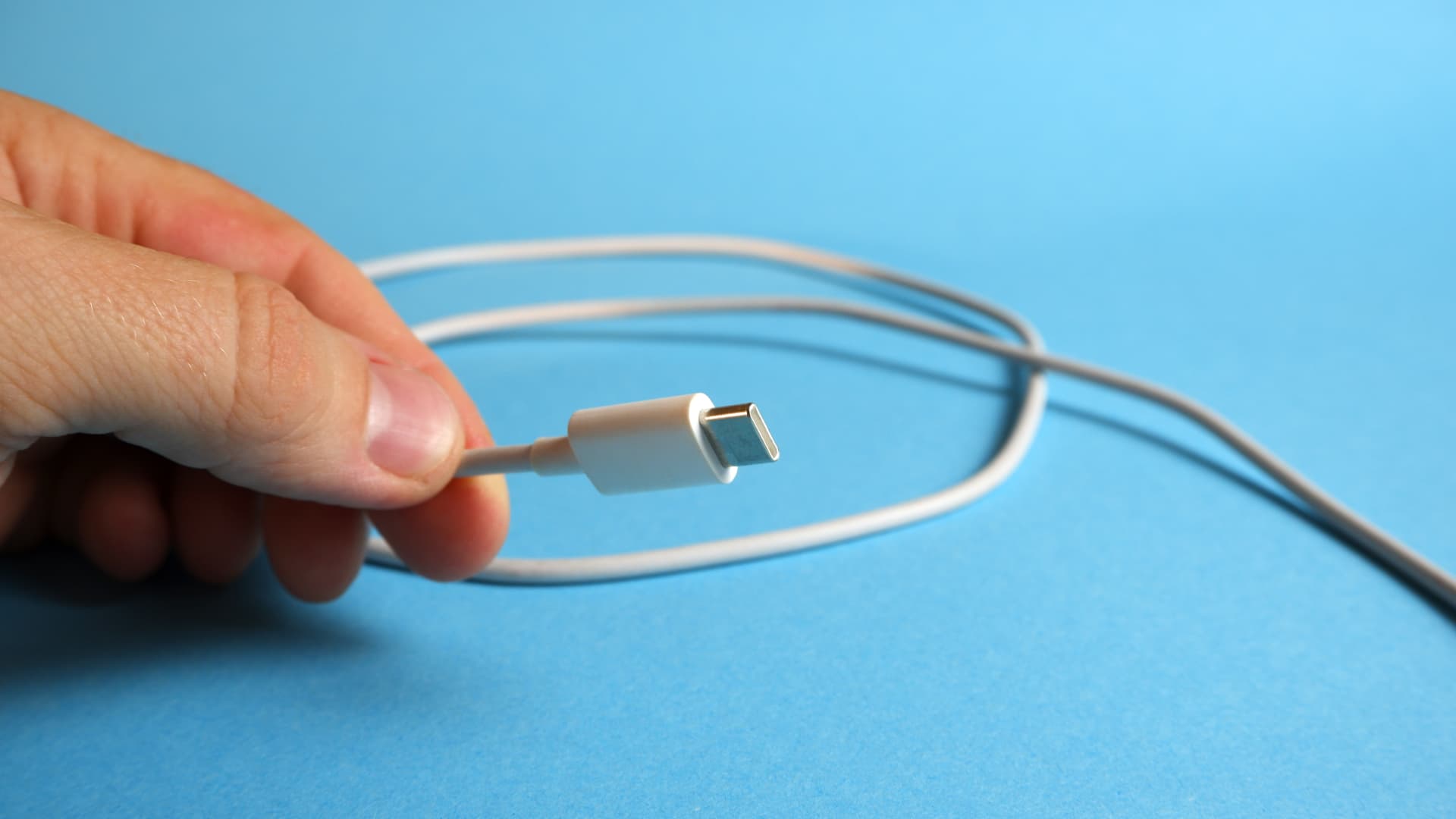Apple iPhone and other devices may be forced to use a common charger after EU lawmakers approve rule
European Parliament approved a rule which, if passed, would mean all electronic devices sold in the EU must be equipped with USB Type-C charging capabilities.

European lawmakers are looking to introduce a law that would require electronic devices to use a common charger. EU lawmakers have proposed USB Type-C as the common standard.
gelmold | iStock | Getty Images
European lawmakers on Tuesday approved a new law that would require electronic devices to use a common charger.
The European Parliament approved the rule which, if passed, will mean all mobile phones, tablets and cameras sold in the European Union must be equipped with a USB Type-C charging port by the end of 2024.
That would affect companies like Apple and others that currently don't use USB Type-C. Apple's iPhone uses its proprietary Lightning charger. In theory, Apple would need to include the common charging type if it were to sell its iPhones in the EU.
Apple's newer iPads and MacBooks are already equipped with USB-C ports.
Apple was not immediately available for comment when contacted by CNBC.
The charging rules, which have been more than 10 years in the making, are currently going through the EU legislative process so have not yet come into effect.
The European Commission, the EU's executive arm, agreed on the legislation in June. Now the European Parliament has given it the green light. It is now up to the European Council, which is made up of representatives of governments of EU countries, to give it a final approval before it becomes law.
EU lawmakers argue the rules will reduce wastage as consumers do not need to buy a new charger every time they purchase a device. The EU said that this will reduce production and the disposal of new chargers.
If the law is passed, in theory, consumers would be able to use a Samsung USB Type-C charger to charge their compatible iPhone.
"This future-proof law allows for the development of innovative charging solutions in the future, and it will benefit everyone — from frustrated consumers to our vulnerable environment," Alex Agius Saliba, a member of European Parliament, said in a press release.

 ShanonG
ShanonG 



























.jpg&h=630&w=1200&q=100&v=154b70b92d&c=1)



